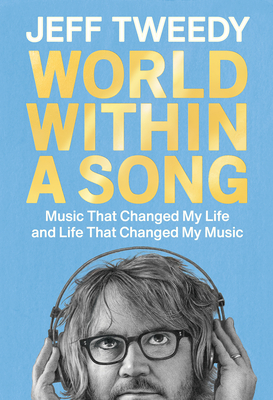
World Within a Song: Music That Changed My Life and Life That Changed My Music
Jeff Tweedy
Questions & Answers
Music profoundly influences personal identity and development, as exemplified by Jeff Tweedy's life. His deep engagement with songs has shaped his thoughts, memories, and experiences. Tweedy's exposure to diverse music from an early age, such as "Smoke on the Water" and "Don't Think Twice, It's All Right," instilled in him a sense of freedom and self-identity. His father's love for music, especially "Long Tall Glasses," created lasting memories and taught him about resilience. Through songs, Tweedy learned about love, loss, and the human condition, which influenced his songwriting and performing. His appreciation for artists like Bob Dylan and Joni Mitchell, and his experiences with bands like the Clash and the Velvet Underground, further shaped his musical and personal identity. Tweedy's journey demonstrates how music can be a powerful tool for self-discovery, emotional expression, and connection to others.
Songs possess unique qualities that enable them to serve as both personal and collective memory. Their melodies and lyrics are deeply evocative, capable of triggering vivid memories and emotions. The personal connection comes from the unique experiences and emotions each individual brings to a song, creating a personal narrative. Meanwhile, songs transcend time and space by resonating with a wide audience, sharing collective experiences and emotions. Their repetitive nature allows them to be easily remembered and shared, fostering a sense of community. Additionally, songs have the power to encapsulate and convey complex ideas and emotions, making them a universal language that connects people across different cultures and eras.
Jeff Tweedy's approach to music and songwriting reflects a deep belief in creativity as a fundamental human experience. He emphasizes the importance of making time for imagination and creation, suggesting that it is both beneficial and essential. Tweedy's work also underscores the power of connection through music, as he shares personal stories of how songs have connected him to others and to his own past. His writing often delves into the transformative impact of music on personal growth and emotional expression. Furthermore, Tweedy views music as a vital force in society, capable of fostering understanding, empathy, and a sense of shared humanity. He advocates for an open-minded approach to music, valuing diverse genres and styles, and encourages others to explore and appreciate the vastness of musical expression.
Jeff Tweedy's reflections on the songs he discusses in "World within a Song" offer a rich tapestry of life lessons. Key among them are the power of music to heal, the universality of human emotions, and the transformative impact of shared experiences. Songs like "Loud, Loud, Loud" and "Both Sides Now" underscore the ability of music to provide solace and insight, transcending language and cultural barriers. Tweedy's musings on "My Sharona" and "I Will Always Love You" delve into the complexities of love and relationships, revealing the nuances of longing, vulnerability, and connection. His analysis of "History Lesson—Part II" and "I’m Against It" highlights the importance of authenticity, community, and the punk ethos of embracing individuality. These lessons collectively underscore the profound role music plays in shaping our understanding of life, love, and the human experience, reminding us of the shared humanity that binds us all.
Jeff Tweedy's narrative style and personal anecdotes significantly contribute to the book's message by offering a deeply personal and relatable perspective on music's impact on life and creativity. His storytelling is introspective, often weaving personal experiences with songs, creating a sense of connection between the reader and the subject matter. This approach reveals Tweedy's belief in the power of music to shape memories, emotions, and personal growth.
Tweedy's anecdotes illustrate the intimate relationship between music and life, showing how songs can evoke vivid memories and influence personal development. His perspective on storytelling is that it should be authentic and reflective of individual experiences, emphasizing the importance of self-expression and vulnerability. The creative process, as Tweedy sees it, is a deeply personal journey that involves both listening and making music, with the potential to foster connection and understanding among people.